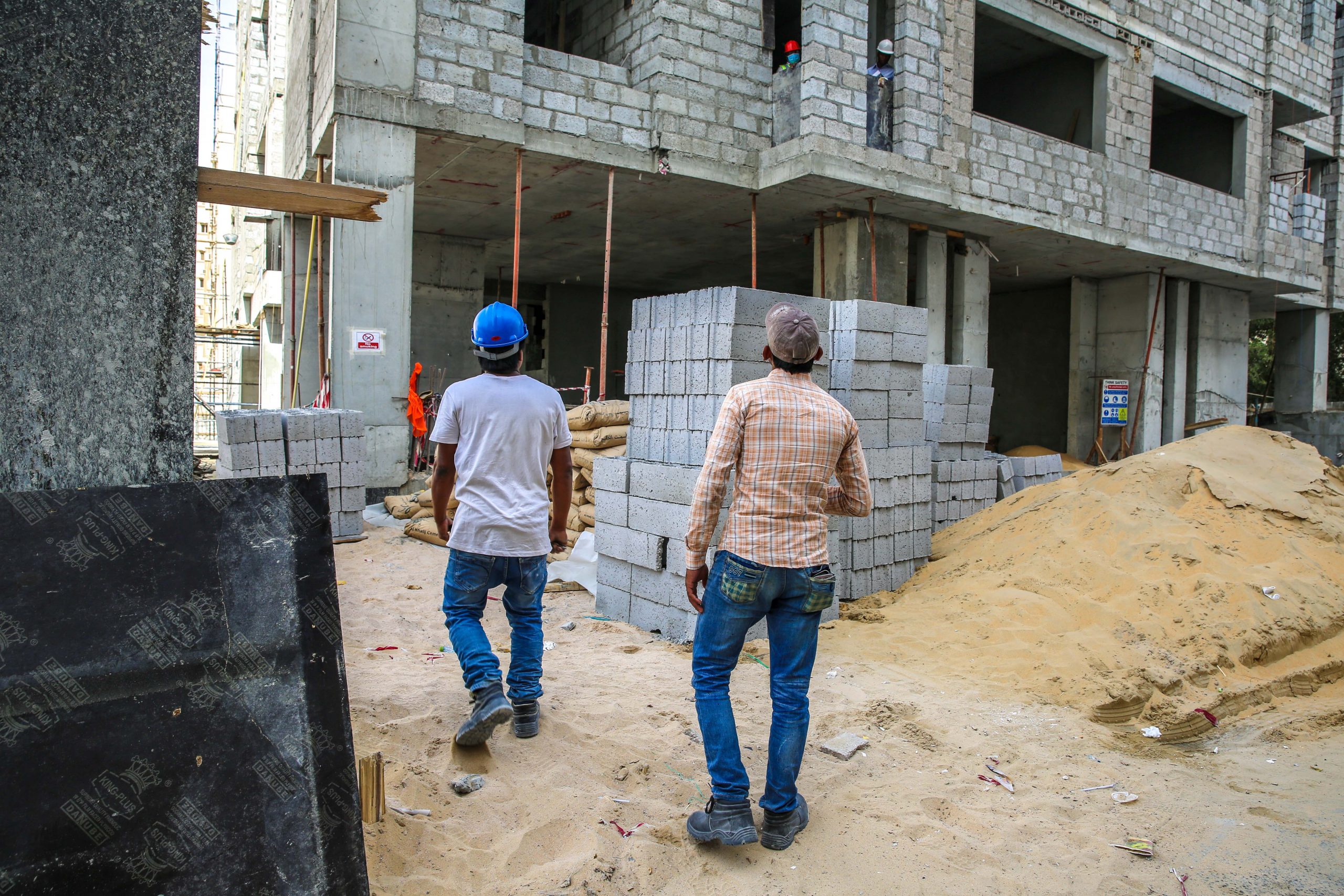
A deal that could send Cambodian carpenters, electricians, bricklayers, welders and numerous blue-collar workers to Qatar is likely “soon,” but only if authorities can guarantee safer working conditions for its nationals, officials from the southeast Asian country have said.
According to the Khmer Times, Aspiring Cambodian migrant workers apparently applied for jobs in Qatar via job agencies in May, but cannot travel to Doha until their government receives assurances from Qatar labor ministry officials that construction sites meet “minimum safety standards.”
It is unclear how many Cambodians currently work in Qatar, but the number is likely small, as there is no diplomatic mission here.
Demand for new construction workers is expected to peak over the next few years in Qatar, as the country makes major infrastructure improvements and builds a new metro, new port and several stadiums in preparation for the World Cup in 2022
Negotiations
Talks between Qatar and Cambodia apparently began in February, with the Cambodian delegation emphasizing that a guarantee of good safety standards was necessary for a deal to go ahead.
Now Heng Sour, the spokesman for the Cambodian Ministry of Labor, has hinted that these talks may soon produce an agreement.
He told the Khmer Times that job opportunities in Qatar could benefit Cambodian workers:
“We want to open up the market for Cambodian workers. As long as the market benefits Cambodian workers, and is safe for Cambodian workers….we will send workers.”

According to one agency that will help send workers to Qatar, the job opportunities will benefit Cambodian workers in the long run:
“Working in Qatar could help Cambodians … the salary may be low, but Cambodian people can learn a lot in two years. They can build experience and knowledge. Then they will earn a much higher salary when they come home,” said Tha Varath, managing director of Korean company KCTC.
The agency added that employers in Qatar are “eager to hire” the men on their books.
Despite the financial benefits of a job overseas, there are dissenting voices in Cambodia.
Moeun Tola, head of the labor program at the Center for Legal Education, told the Khmer Times that many of those applying to work in Qatar are among the country’s most vulnerable:
“I think the Cambodian government should create jobs here instead of only sending people abroad. Sometimes these workers can’t even read or write their own name. They would become the most vulnerable group,” he said.
Safety
Qatar’s workplace safety record has come under intense scrutiny in recent months, with international media and rights groups accusing authorities of ignoring dangerous working conditions that can lead to death.

In June, Qatar’s government issued a public rebuttal against claims made in the Washington Post that thousands had died and would continue to be killed while building World Cup sites.
In its statement, Qatar’s government office said such allegations were “completely untrue,” adding:
“In fact, after almost five million work-hours on World Cup construction sites, not a single worker’s life has been lost. Not one.”
Though conditions on stadium sights may be strictly monitored, many other projects do not face the same scrutiny, rights groups have argued.

And though multiple road projects and Lusail City may not be directly considered World Cup sites, they are connected to Qatar’s hosting of the global event, and thus the welfare of workers on these projects should also be under scrutiny, they added.
Qatar has also come under enormous pressure to reform its kafala sponsorship system, which prevents expats from leaving the country or switching employers without their sponsor’s permission, among otherthings.
Although authorities announced last May that they would reform the system, no firm timeline has been set for when any changes will come into effect.
Similar deals
As the focus on Qatar’s workplace safety record intensifies ahead of 2022, a number of countries have tried to improve conditions for their nationals working here.

For example, the Philippines government has been in long-running talks to improve the salary and terms and conditions for its domestic workers, attempting to enforce a US$400 (QR1,457) monthly minimum wage.
In response, the Qatar government introduced an unofficial ban on new visas for domestic workers from the Philippines a couple years ago, resulting in a drastic reduction in the number of new Filipina maids arriving in Qatar.
Meanwhile, in May, Qatar became one of 21 countries which the Indonesian government banned its women from working in as domestic helpers for not doing enough to protect them from abuse.
The move followed comments from the Indonesian president to preserve the “pride and dignity” of Indonesian women.
Other countries, however, are continuing to encourage their workers to travel to work in Qatar, emphasizing the financial benefits of doing so.
Last month, the Pakistani government said that it was training some 200,000 of its nationals to work as blue-collar workers in Qatar to help build the Gulf country’s infrastructure in the run-up to the World Cup.

In response to safety questions, Provincial Labor Minister Raja Ashfaq Sarwar said at the time that his country would train future blue-collar workers to have an awareness of industrial safety and give them information about the dangers of human traffickers, as well as advice on how to avoid them.
And in February, Qatar labor officials approved work visas for 50,000 more Bangladeshi workers.
At the same time, a Bangladeshi minister announced that Qatar had agreed to force local companies to only hire nationals who had registered in a government database in their home country.
The move would theoretically reduce the role of recruiters, who often charge migrants illegal fees and make false salary promises.
Thoughts?







